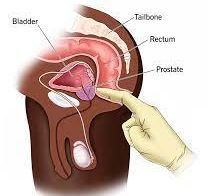
Discover helpful parenting tips for fostering positive behavior, managing challenges, and building strong, healthy relationships with your children.
Welcome to “A Parent’s Guide to Raising Healthy Children: Essential Health Advice.” Parenting is a journey filled with love, joy, and responsibilities. This guide offers valuable advice to help you navigate the challenges and make informed decisions in raising healthy children. Let’s embark on this journey together and prioritize the well-being of your family.

Parenting is a journey filled with love, joy, and countless responsibilities. As a parent, ensuring the health and well-being of your children is a top priority. While there is no one-size-fits-all approach, this post aims to offer valuable health advice to help you navigate the challenges and make informed decisions in raising healthy children. Let’s embark on this journey together!
Parenting-Establish Healthy Habits from the Start:
Creating a foundation of healthy habits early on sets the stage for a lifetime of well-being. Encourage regular physical activity, provide balanced meals, and prioritize sufficient sleep. Limit screen time and promote engaging activities that stimulate creativity and social interaction.

Nutritious Eating for Optimal Growth:
A well-balanced diet is crucial for your child’s growth and development. Offer a variety of fruits, vegetables, whole grains, lean proteins, and dairy products. Limit sugary drinks and unhealthy snacks. Encourage family meals, involving children in meal planning and preparation to foster a positive relationship with food.
Immunizations: Protecting Against Preventable Diseases:
Immunizations are vital for safeguarding your child’s health. Follow the recommended vaccination schedules provided by healthcare professionals to protect your child against a range of preventable diseases. Stay informed about the benefits of vaccines and address any concerns you may have by consulting with your healthcare provider.

Regular Pediatric Check-ups:
Routine well-child visits with a pediatrician are essential for monitoring your child’s growth, development, and overall health. These visits allow healthcare professionals to conduct screenings, discuss age-appropriate milestones, provide immunizations, and address any concerns you may have. Stay proactive and schedule regular check-ups as recommended.
Mental Health and Emotional Well-being:
Promoting good mental health is as important as physical health. Encourage open communication with your child, create a supportive environment, and actively listen to their thoughts and feelings. Teach them coping strategies for managing stress and emotions. If concerns arise, seek professional guidance from mental health experts specializing in children and adolescents.
Safety First: Preventing Accidents and Injuries:
Childproof your home, create safe play areas, and educate your child about potential hazards. Use appropriate car seats and seat belts, promote helmet use during activities like biking or skating, and supervise water activities. Teach your child about personal safety, stranger danger, and the importance of good hygiene practices.
Foster Healthy Relationships and Social Skills:
Help your child develop healthy relationships and social skills. Encourage empathy, kindness, and respect for others. Foster opportunities for social interactions through playdates, extracurricular activities, and community involvement.
Lead by Example:
As a parent, you are your child’s first and most influential role model. Lead by example through your own healthy habits, positive attitudes, and responsible behavior. Your child will learn and emulate what they observe.

Encourage Physical Activity and Play:
Physical activity is vital for children’s overall health and development. Encourage outdoor play, sports, and age-appropriate activities that promote movement, coordination, and strength. Limit sedentary activities and screen time, providing opportunities for active play and exercise. Regular physical activity supports healthy growth, improves cardiovascular fitness, boosts mood, and enhances cognitive function.
Promote Proper Oral Hygiene:
Good oral hygiene habits are essential for maintaining healthy teeth and gums. Teach your child the importance of brushing teeth at least twice a day with fluoride toothpaste, and ensure they visit the dentist regularly for check-ups and cleanings. Encourage a balanced diet that limits sugary foods and drinks, which can contribute to tooth decay.

Teach Handwashing and Hygiene Practices:
Proper handwashing is a crucial habit for preventing the spread of germs and infections. Teach your child to wash their hands with soap and water for at least 20 seconds, especially before eating, after using the restroom, and after being in public spaces. Instilling good hygiene practices, such as covering the mouth and nose when sneezing or coughing, helps prevent the transmission of illnesses.
Monitor and Manage Screen Time:
In addition to setting limits on screen time, it’s important to monitor the content your child consumes. Be aware of the apps, games, and websites they engage with and ensure they are age-appropriate and promote healthy values. Use parental controls and establish technology-free zones or times, allowing for quality family interactions and promoting creativity and imaginative play.
Foster a Healthy Body Image and Self-esteem:
Encourage positive body image and self-esteem in your child. Promote a healthy perception of beauty and focus on inner qualities rather than appearance. Teach them to appreciate their unique qualities and talents and discourage comparisons with others. Encourage a balanced perspective on media portrayals of beauty and challenge unrealistic standards.
Sleep Hygiene and Adequate Rest:
Adequate sleep is crucial for children’s growth, development, and overall well-being. Establish a consistent bedtime routine that includes winding down, avoiding screens before bed, and creating a calm sleep environment. Ensure your child gets the recommended amount of sleep for their age, as sleep deprivation can affect their physical health, cognitive function, and emotional well-being.
Open Communication and Active Listening:
Create an open and supportive environment that encourages your child to communicate their thoughts, feelings, and concerns. Be an active listener, providing a safe space for them to express themselves without judgment. Encourage open conversations about health, emotions, and any challenges they may be facing. This helps build trust and strengthens your parent-child relationship.
Instill the Value of Regular Reading:
Encourage a love for reading from a young age. Regular reading not only promotes language and literacy skills but also enhances cognitive development and imagination. Set aside dedicated time for reading together as a family and provide a variety of books that cater to your child’s interests and reading level.

Foster a Balanced Schedule and Reduce Over-scheduling:
While it’s important to expose your child to various activities and interests, be mindful of their workload and schedule. Avoid over-scheduling and allow for unstructured playtime and downtime. Balancing academic, extracurricular, and free time helps prevent burnout, promotes creativity, and allows for healthy development.
As parents, you play a significant role in shaping your child’s health and well-being. By following these essential health tips, including promoting physical activity, proper hygiene, and oral care, fostering open communication, monitoring screen time, and fostering a positive body image, you can create a foundation of lifelong healthy habits for your children. Embrace the joy and challenges of parenting and remember that your guidance and support are instrumental in helping your children thrive physically, mentally, and emotionally. Raising healthy children requires dedication, patience, and a commitment to their well-being. By establishing healthy habits, prioritizing preventive healthcare, promoting mental and emotional well-being, ensuring safety, and being a positive role model, you can empower your children to thrive. Remember, each child is unique, and parenting is a journey of learning and adaptation. Embrace the joys, navigate the challenges, and cherish the gift of nurturing your child’s health and happiness.
Disclaimer: The information provided in this content is for general informational purposes only. It is not intended as medical or healthcare advice, diagnosis, or treatment. Always seek the advice of a qualified healthcare professional with any questions you may have regarding a medical condition or healthcare decisions.
Parenting Parenting Parenting Parenting Parenting Parenting Parenting Parenting Parenting Parenting Parenting Parenting Parenting Parenting















